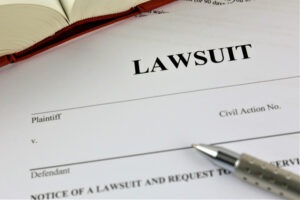
Losing a loved one is always a painful experience, but it becomes all the more devastating when that loss occurs due to someone else’s negligence, recklessness, or intentional actions. In such circumstances, it is natural for surviving family members to seek justice through a civil wrongful death action. But what are the chances of winning such a case with help from an Oklahoma wrongful death lawyer?
This blog post will delve into the complexities of wrongful death lawsuits, examining the factors influencing the likelihood of success and offering guidance to those considering legal action.
The Elements of a Wrongful Death Claim
To secure a favorable outcome in a wrongful death lawsuit, the plaintiff must successfully establish four crucial elements. Each of these elements plays a vital role in building a strong case and ensuring that justice is served. The four key elements are as follows:
Duty of Care
The first step in proving a wrongful death claim is to demonstrate that the defendant owed the deceased individual a legal duty of care. This duty of care can arise in various situations, such as a doctor-patient relationship, a driver’s responsibility to follow traffic laws, or a property owner’s obligation to maintain a safe environment for visitors.
It is essential to establish that the defendant was in a position where they had a responsibility to exercise reasonable care to prevent harm to the deceased.
Breach of Duty
Once the duty of care is established, the plaintiff must prove that the defendant breached that duty. This breach can occur in numerous ways, such as acting negligently, recklessly, intentionally, or failing to act when required. The plaintiff must present evidence showing that the defendant’s actions, or lack thereof, deviated from the standard of care expected in the specific situation, leading to the breach of duty.
Causation
The third element involves proving a causal link between the defendant’s breach of duty and the deceased’s death. This means demonstrating that the defendant’s actions, or inactions, directly led to the fatal incident. The plaintiff must show that the death would not have occurred but for the defendant’s breach of duty.
It is crucial to establish that the defendant’s negligence was the proximate cause of the loss rather than a mere contributing factor or an unrelated coincidence.
Damages
Lastly, the plaintiff must provide evidence of the economic and non-economic damages the deceased’s survivors suffered due to the wrongful death. These damages can encompass a wide range of losses, such as financial, emotional, and psychological.
The plaintiff must effectively demonstrate the damages’ extent to ensure appropriate compensation is awarded. By successfully proving these four key elements—duty of care, breach of duty, causation, and damages—the plaintiff increases their chances of prevailing in a wrongful death settlement and obtaining the justice they seek.
Our Team Is Here To Assist You Every Step Of The Way.
SPEAK TO AN ATTORNEY TODAYPotential Damages in a Wrongful Death Suit
The decedent surviving family members and estate may be entitled to compensation through the wrongful death lawsuit. Potentially recoverable damages can be economic or non-economic.
Economic damages are financially based, while non-economic damages account for emotional distress, pain and suffering, and the ways your life has been affected by the death of your loved one. Some examples of economic damages could include:
- Medical expenses
- Lost earning capacity and wages
- Burial and funeral expenses
Some examples of non-economic damages could include:
- Loss of consortium
- Lots of love and companionship
- Emotional trauma
- The decedent’s pain and suffering
Punitive damages can be awarded in instances where the defendant’s actions are egregious. The court system will award them in the hopes of deterring similar conduct from occurring in the future.
Factors Influencing the Chances of Winning a Wrongful Death Suit
In pursuing justice after the untimely loss of a loved one due to another’s negligence or misconduct, families often navigate the complex world of wrongful death lawsuits. Various factors can influence the likelihood of a favorable outcome in such cases. Understanding these factors is essential for setting realistic expectations and preparing effectively for the legal battle.
Quality of Evidence
The strength of the evidence presented is crucial in determining the outcome of a wrongful death case. Clear and compelling evidence of the defendant’s liability is essential for a favorable verdict. This may include witness testimony, expert opinions, medical records, and other documentation supporting the plaintiff’s claims.
Sharing Liability
Sharing fault can have a significant impact on the amount of compensation you can be awarded through a wrongful death claim. Oklahoma follows modified comparative negligence laws. If the decedent was partially responsible for their fatal injuries, it could reduce the amount of compensation surviving family members are awarded in the wrongful death claim.
If the decedent’s portion of liability exceeds 50%, it may be more difficult to recover compensation through a wrongful death lawsuit, as this percentage of liability is greater than the threshold allowed under Oklahoma’s modified comparative negligence statute.
Legal Representation
The expertise and experience of the legal team representing the plaintiff can significantly impact the outcome of a wrongful death case. A skilled attorney will be able to identify the strengths and weaknesses of a case, navigate the legal complexities, and present a strong argument in court.
Defendant’s Actions
The defendant’s actions leading to the wrongful death play a significant role in the chances of winning a lawsuit. Cases involving intentional acts, gross negligence, or extreme recklessness are more likely to result in a favorable verdict for the plaintiff.
Jurisdiction
Wrongful death laws and procedures vary from state to state. Some jurisdictions may have more favorable laws or precedents for plaintiffs, while others may be more challenging. Understanding the specific laws and regulations governing wrongful death claims in the relevant jurisdiction is essential for assessing the chances of success.
Strategies for Increasing the Chances of Success
The pain of losing a loved one is immeasurable, and when the negligence or wrongdoing of another causes that loss, the pursuit of justice becomes paramount. While winning a wrongful death suit can be a complicated and challenging endeavor, strategic steps can be taken to increase the likelihood of success.
Gather Strong Evidence
Collecting and preserving evidence is critical to building a strong case. This includes documenting the accident scene, collecting witness statements, obtaining relevant records, and engaging experts who can provide credible testimony.
Choose the Right Attorney
Hiring an experienced wrongful death attorney is essential for navigating the complexities of these cases. Look for a lawyer with a proven track record in wrongful death cases and one who is compassionate and understanding of the emotional toll these lawsuits can take on grieving families.
Understand the Statute of Limitations
Each state has a statute of limitations governing wrongful death claims, which sets a deadline for filing a lawsuit. Knowing this time limit and ensuring the case is filed within the specified time frame is crucial to avoid losing the right to seek compensation.
Explore Settlement Options
Many wrongful death cases are resolved through settlement negotiations rather than going to trial. This can be a quicker and less emotionally draining option for the surviving family members. However, it’s important to have an attorney who can effectively negotiate to ensure you receive a fair and just settlement.
Get Ready for Trial
While many wrongful death cases are settled out of court, some may go to trial. In such cases, it is essential to be prepared for the rigors of a trial, which can be emotionally challenging and time-consuming. An experienced attorney will help you navigate the trial process and present a compelling case to the jury.








